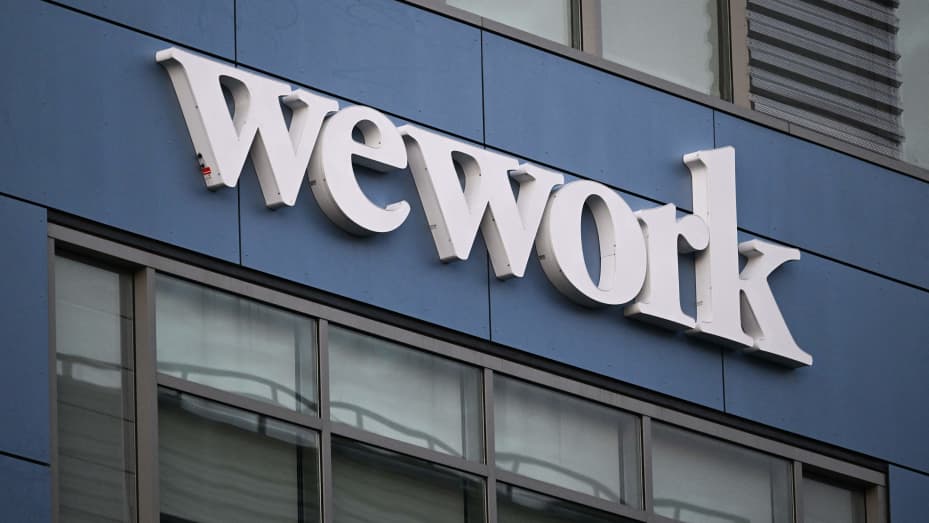“WeWork, Formerly Valued at $47 Billion, Declares Bankruptcy in the United States”
Formerly valued at $47 billion, WeWork, the New York-based co-working company, has filed for bankruptcy, citing assets and liabilities in the range of $10 billion to $50 billion in a Chapter 11 petition. This marks a new low for the company that struggled to recover from the pandemic and its failed 2019 initial public offering.


WeWork, the once high-flying co-working startup, has filed for bankruptcy, marking a significant setback for the company that struggled to regain its footing after the challenges posed by the pandemic and its failed initial public offering (IPO) in 2019. The New York-based company submitted a Chapter 11 petition in New Jersey, disclosing both assets and liabilities in the estimated range of $10 billion to $50 billion. This filing enables WeWork to continue its operations while working on a plan to settle its outstanding debts.
WeWork had initially reached a substantial debt restructuring agreement in early 2023, but the company’s financial woes resurfaced. By August, it publicly expressed “substantial doubt” about its ability to sustain its operations. Shortly thereafter, WeWork announced its intentions to renegotiate nearly all its leases and withdraw from “underperforming” locations.
As of June 30, WeWork’s real estate network spanned 777 locations across 39 countries, with occupancy levels nearing those of 2019. Despite its extensive presence, the company has consistently reported losses, raising questions about its long-term viability.
The co-working giant’s path to instability began with its failed IPO in 2019, which was marred by concerns from investors about corporate governance, valuation, and growth prospects. This development led to the resignation of founder Adam Neumann as chief executive officer and a dramatic decline in WeWork’s valuation, which had once reached a lofty $47 billion.
WeWork eventually went public in 2021 through a merger with a special purpose acquisition company (SPAC), but the company’s challenges persisted. The broader shift in working habits brought about by the pandemic also adversely affected WeWork’s business model.
WeWork is not the only co-working company to face financial troubles in the wake of the pandemic. Knotel Inc. and subsidiaries of IWG Plc also sought bankruptcy protection in 2021 and 2020, respectively. These challenges illustrate the evolving landscape of the co-working industry and the impacts of unforeseen global events on such businesses.
Sources By Agencies




